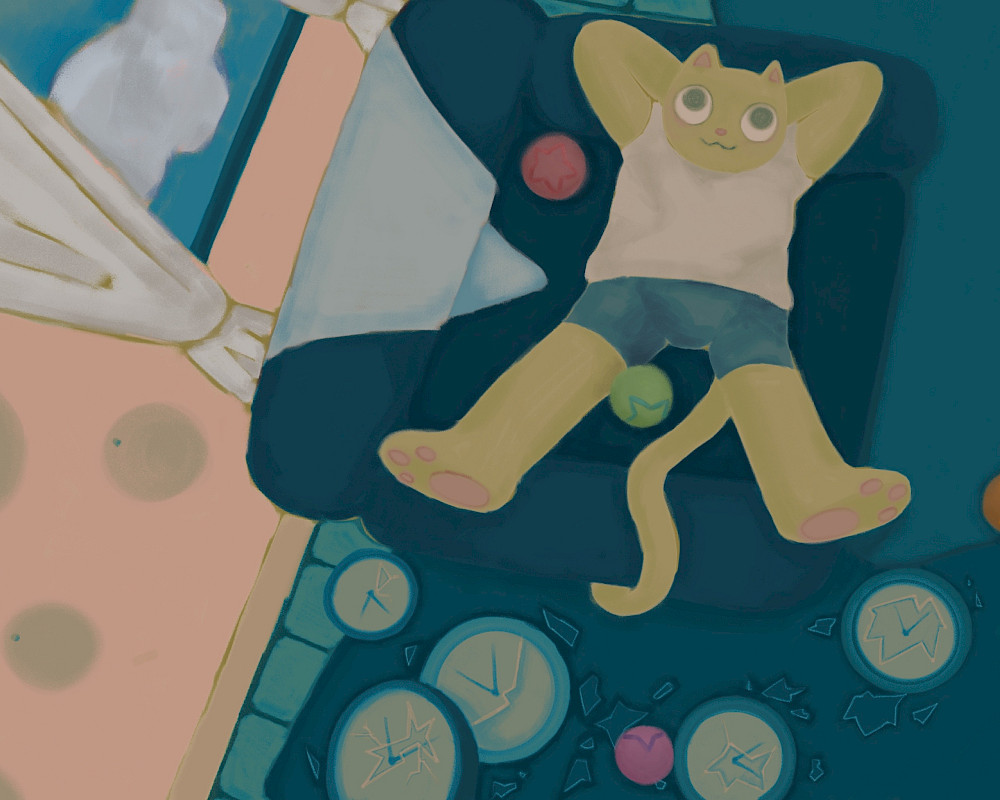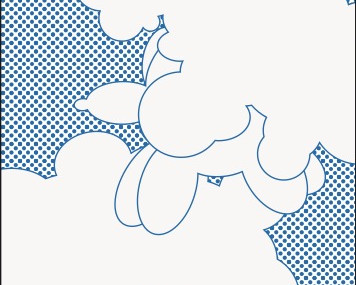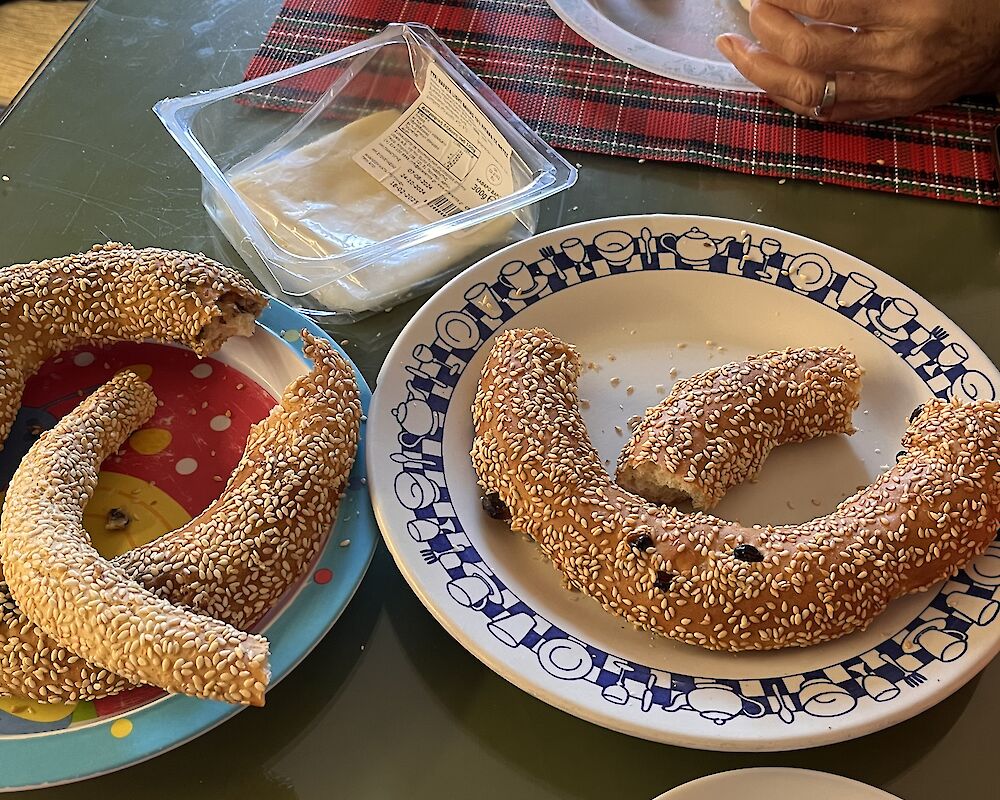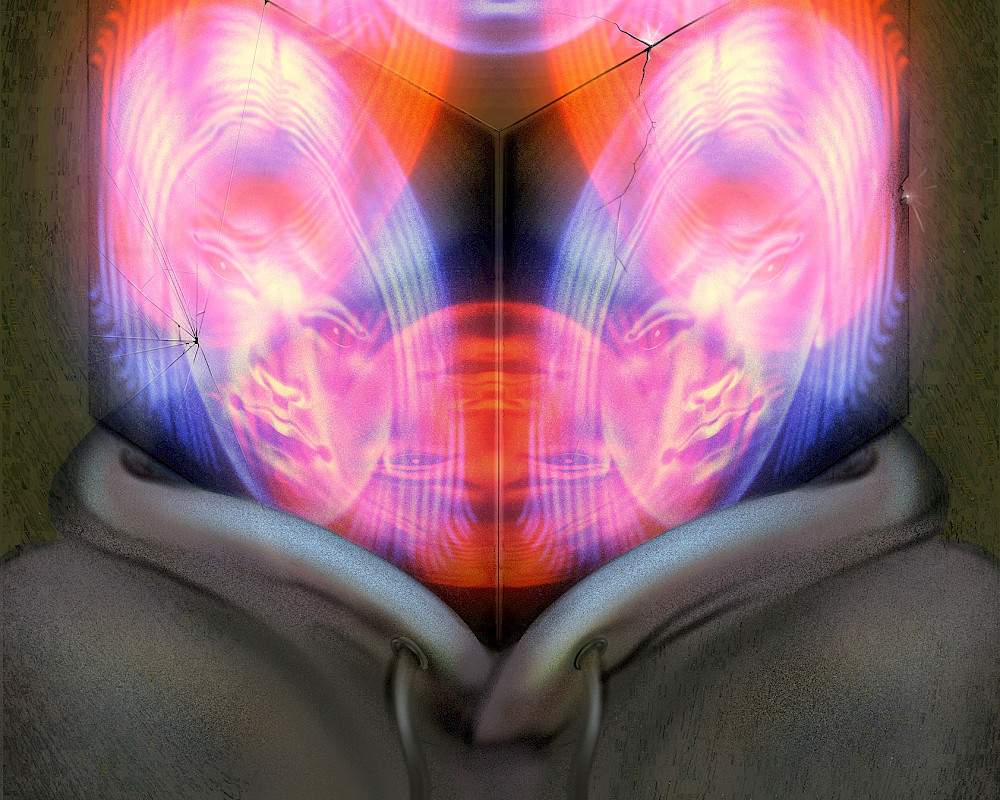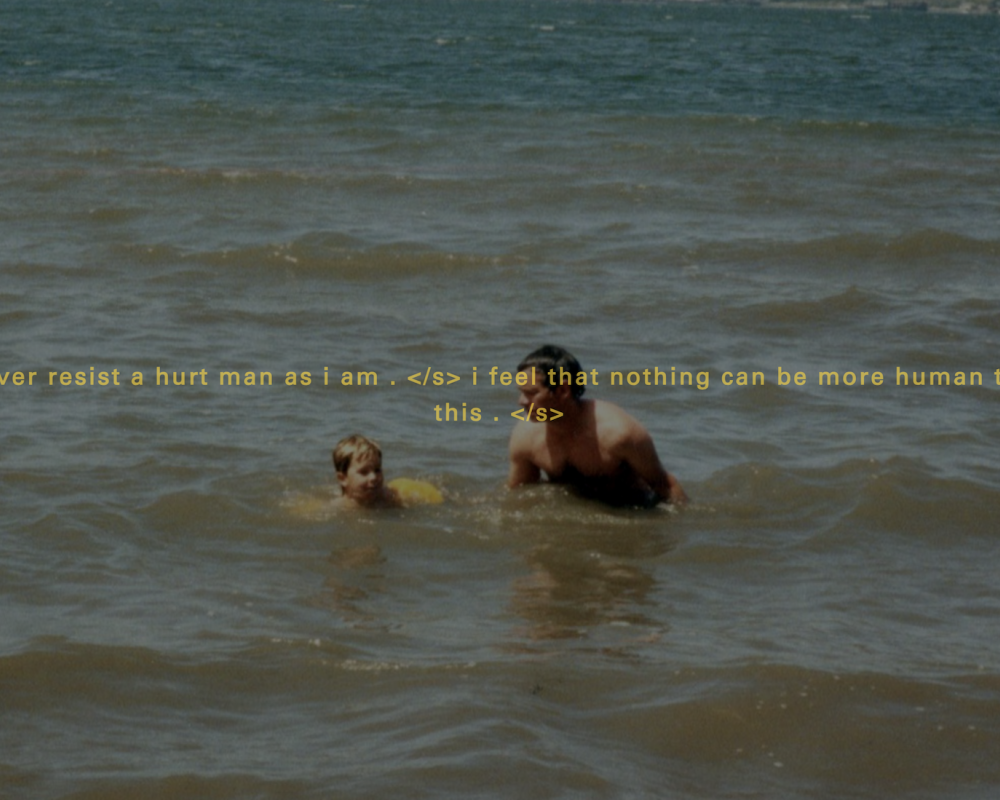essay
Take what you’re owed // Fugitive Dreams
Sondi
Anke Sondi Rumohr (she/her) is a new media artist and multi-disciplinary graphic designer from Germany, born in Cameroon and based in the Netherlands. Her work is deeply rooted in her identity as a person of theAfrican diaspora and acts as a conduit to unravel the intricate and intimate layers of identity, belonging, ownership, and heritage. Reflecting on the interplay between our corporeal, spiritual, and digital selves, her work spans a diverse range of mediums, including audio visual performance, theatre, music, film, and education. Her artistic process centres on the concept of worldbuilding: creating virtual environments where memory, ancestry and imagination enter into being. In her virtual dreamscapes, as shown in her Sandberg graduation project Sleep On It (2023, from the temporary master Blacker Blackness), she examines new modes of being, using the power of imagination as an instrument of liberation.
10
min read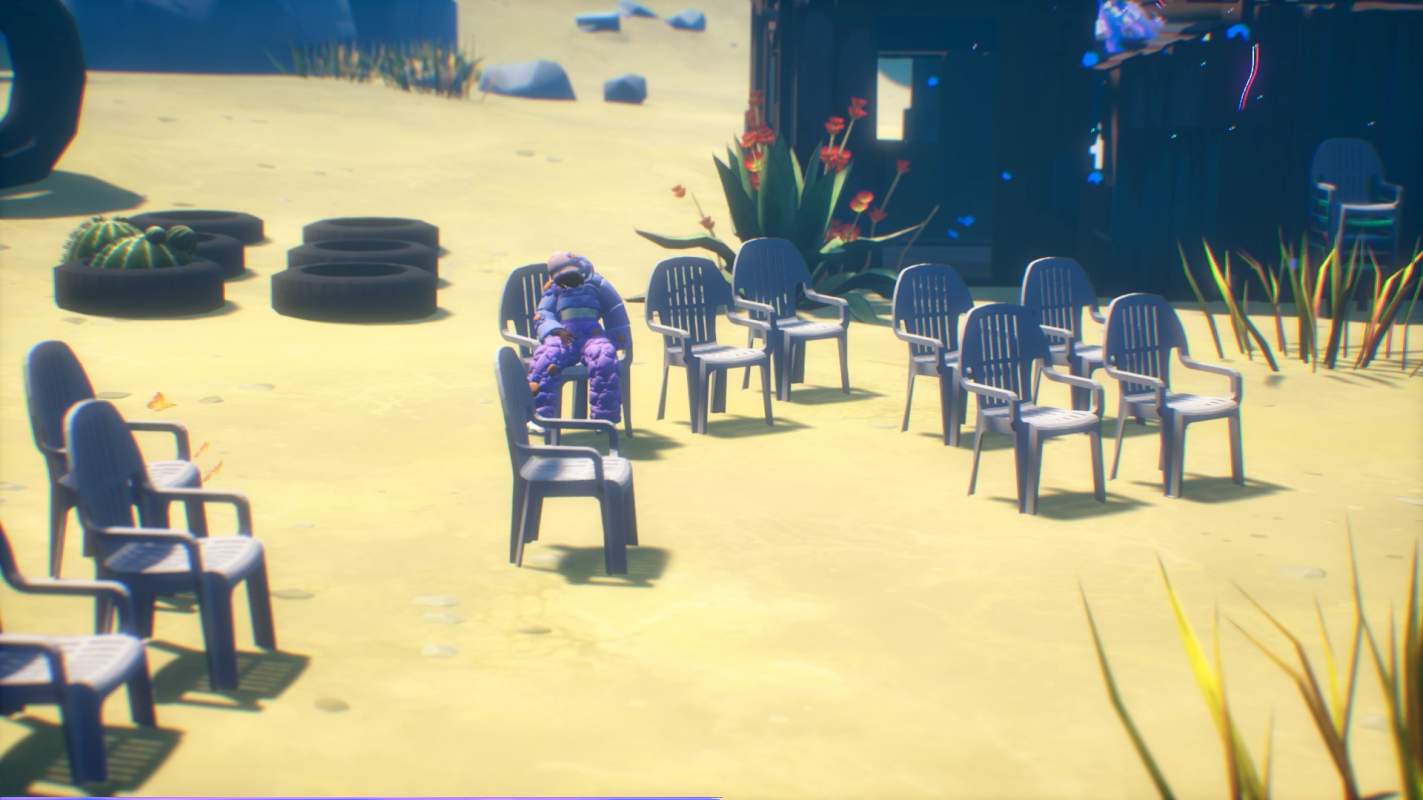
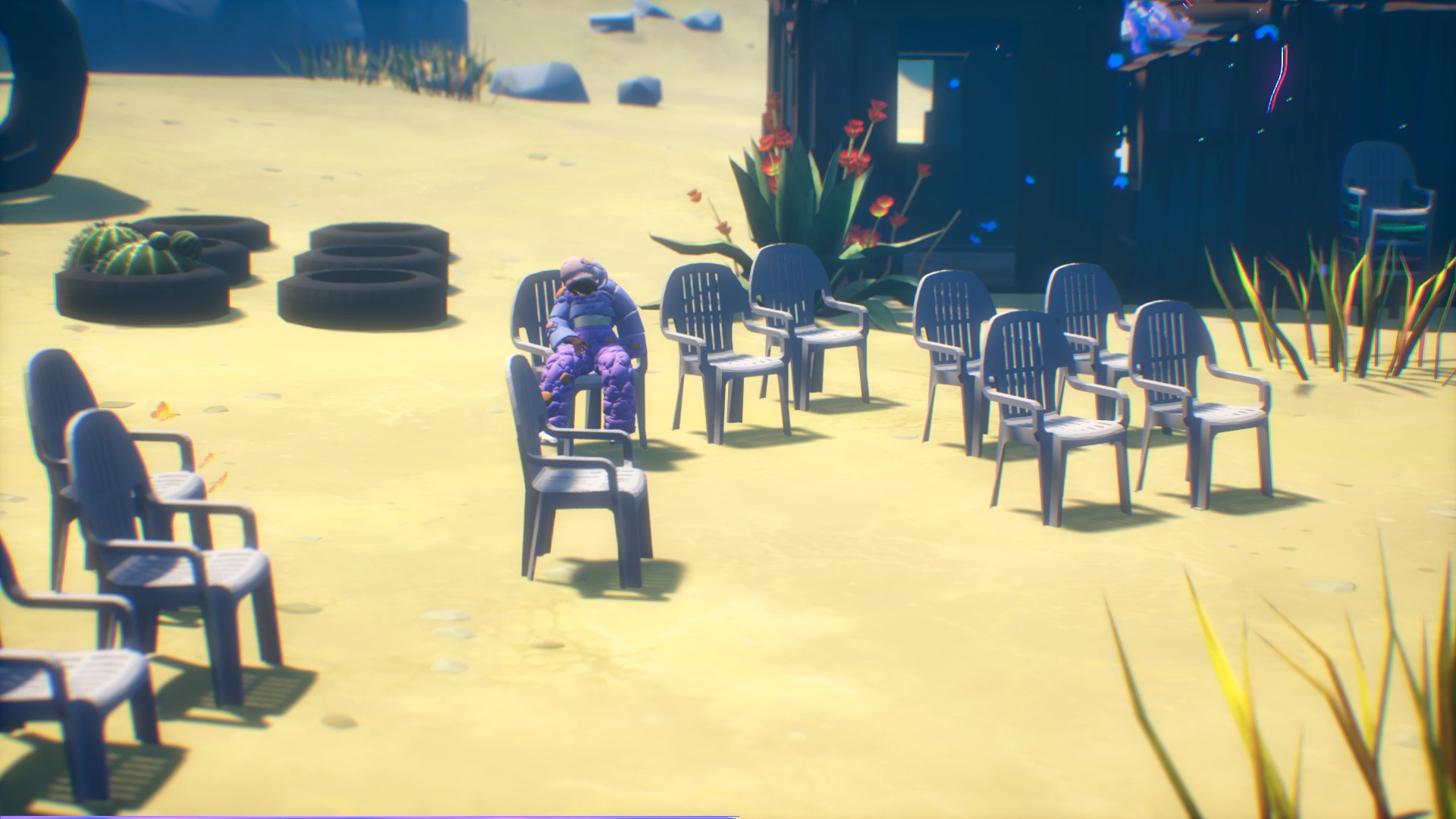
Editor's note: this essay was commissioned alongside Sondi's work Mbombo: Dream Echoes, for which Marly Pierre-Louis was also a narrative designer. The images are stills from the game. After reading, be sure to download the game and explore the world of Black rest as imagined by Sondi, Marly and their collaborators.
***
I'm trying to move past rest as an aesthetic construct.
Last year, I sat across from my therapist and unpacked a lot of daddy issues and some mommy issues and felt I was well on my way to a trauma free future. Until one session where she brings me back down to earth with the who told you you're not enough question. Damn, lady. I had to think about it. As Haitian immigrants to the US, my parents certainly passed down the classic you have to work twice as hard to get half as far narrative. They valued a strong work ethic and demanded excellence, yes, but they instilled a strong sense of confidence and self-love in me as well. When my dad tried to bicker with my mom about letting adolescent me wear skorts and crop tops around the neighborhood, my mom defended my bodily autonomy with all her might. They gave me plenty of material to work through in therapy, but lack of self-love wasn’t one of them. It took a couple of sessions before it hit me. And when it did, my stomach turned. Goddamnit I had read all the books, not since 2020 but since I could check out a library card. Twelve year old me was knee deep in bell hooks, Maya Angelou and Angela Davis. Black feminism has always been my lifeline. So it hurt to realize that daddy white supremacy had still managed to sink his claws deep into my psyche.
The violence of white supremacy is that it demands whiteness.
I grew up in Brooklyn in the 80s: Reaganomics, the welfare mom, crack babies, teenage motherhood was the weather of my coming of age. My mother was enlisted as a messenger of white supremacy, they expect the worst of you, don't give it to them, work harder, work harder, work harder. Her survival strategy, my inheritance.
I’m interested in new strategies. Ones that liberate black bodies from being captured within the white imaginary.
I'm trying to move past rest as an aesthetic construct.


To exist in a black body is to exist in a Russian doll of enclosures. It’s Christina Sharpe’s in the wake:
... to be in the wake is to occupy and to be occupied by the continuous and changing present of slavery’s as yet unresolved unfolding.
Living in the wake… means living the disastrous time and effects of continued marked migrations, Mediterranean and Caribbean disasters, trans-American and -African migration, structural adjustment imposed by the International Monetary Fund that continues imperialism/colonialisms, and more.
Living in the wake means living the history and present of terror, from slavery to the present, as the ground of our everyday Black existence; living the historically and geographically dis/continuous but always present and endlessly reinvigorated brutality in, and on, our bodies…[1]
Fugitivity is an acceptance of the reality of the wake. But trust—it is not passive. It is a posture of knowing, a posture which never lets you see its face. Refusing to be pinned down, fugitivity fits conceptually in between afro-pessimism, slavery and black feminist scholarship, and black geographies. It acknowledges and materializes the reality of anti-blackness; the truth of capitalism and the prison industrial complex as a continuation of the slave-economy and the plantation. What I love about it as a conceptual framework is that it gives language to a practice that Black women have always been engaged with—imagining otherwise, surviving apocalypse, moving away from though not necessarily knowing what towards. But knowing that the present is not enough.
To Tina Campt, fugitivity tries to create an opening, a way out. Each time an opening is made, a new enclosure appears [2]. Usually by way of laws that criminalize our survival practices.
Fugitivity is an act of flight.
In writing this essay I have been chasing the concept of rest. I find it slippery.
As it appears in my mind, in my body, rest wants to fall into an aesthetic construct. Meaning it wants to be white and beige, it wants to be fluttery and softly lit. But I am resisting that. I am fleeing from rest as commodity. It's a cat and mouse game, really. Because it chases me back, tells me that there’s more. It tells me to look to Tricia Hersey, not Gwyneth Paltrow. And when I do I find that I am less interested in luxurious naps. I’m far more engaged with the creation of the mental and emotional space it takes for one person to even allow for a nap.
Fugitivity gives language to a practice that Black women have always been engaged with—imagining otherwise, surviving apocalypse, moving away from though not necessarily knowing what towards.
Fugitivity deals with what cannot be seen or accounted for. It’s necessarily opaque.
“It is often humble and strategic, subtle and discriminating. It is devious and exacting. It’s not always loud and demanding. It is frequently quiet and opportunistic, dogged and disruptive.”[3]
When I play with rest as a fugitive strategy, it is one that indeed cannot be seen or accounted for. And that’s the point. Imagine: unaccounted for time? Unbillable time? Rest is silent, quiet – yes, but I love it more if it's dogged, disruptive and opportunistic. The people I write for may not see themselves in the luxury of rest. But I imagine they see themselves in its tactics, rest as a tool of preparation, of readiness. The fugitive makes the next best move. Rest is slippery to me but the fugitive is clear. Having escaped from the plantations, maroons would sneak back in and steal provisions. Rest is a resource to be stolen. The fugitive is clear. It is not something pretty, but it is a soft opening.. It may happen standing up, it may happen on a dirt road, it may happen for mere minutes. Maybe it’s a prayer, a song, maybe it’s a wailing, an entire bed of tears.
I'm trying to move past rest as an aesthetic construct.
Tina Campt writes, “Fugitives… [are] those who by compulsion or choice cannot conform; cannot or will not submit to the law; cannot or do not remain in the proper place, or the places to which they have been confined or assigned.”[4]
Imagine a regime to which you must conform, but physically and psychically cannot. To be human is to seek freedom, to be Black is to be made nonhuman, is to be made criminal. To be a fugitive is to refuse. I am interested in nuanced engagements with law and criminality. If we accept that we’re living in the afterlife of slavery, we can also easily understand police officers as overseers, laws as slave codes. In Fugitive Feminism, scholar and author Akwugo Ejewulu writes, “a fugitive is one who escapes the routine material violence of the slave economy…”[5]
The slave economy has been rebranded. We now call it capitalism—an extractive system we are all trapped in, we are all perpetuating. How might we flee the slave economy?


In Wayward Lives, Beautiful Experiments, Saidiya Hartman asks “What was crime, but the open rebellion of an individual against his social environment?”[6]
I've been thinking a lot about scamming.
How might we steal from systems that have stolen from us?
A story was going around about a journalist encouraging employees to take naps at work. I immediately imagined a small brown woman, an activist, a revolutionary. I was surprised to find out it was a white American dude. Brian Merchant is a technology journalist who considers his concept of “nap-spiration” as a form of rebellion against the demands of modern capitalism and encourages taking naps at work as a way of reclaiming personal time. What’s funny about a white man doing this is that of course he’s allowed to take naps at work. But the rest of us? Captured in an enclosure of white supremacy means forever being marked as a lazy slave. It feels paradoxical right? and yet here we are.
I like the language of scamming because it’s a bit sinister. It takes no moral high ground. It takes what it needs and it moves on. It’s unconcerned, it’s unbothered. The fugitive doesn’t really have the capacity for long term planning. The fugitive is exhausted, she bobs, she weaves. She closes her eyes for a moment. She makes the next best move.
Envious of Merchant’s nervous system, I check in with mine—frazzled, shot, taut—I exhale into my stomach making it full of the only thing I have power over at this moment. My ability to breathe. I’m listening to my son nap next to me on the couch. He woke up this morning, got out of bed, used the bathroom, walked downstairs, told his dad he had a stomach ache, laid down on the sofa and then promptly fell back asleep. His breath is deep and ragged. Imagine falling asleep whenever and wherever –this is love, I think, this is freedom.
Almost everything is an invention. We’re all existing in the imagination of a white man. None of this is preordained. I am owed something. If it won’t be given freely, how might I take it? Is taking it—and by it, I mean time, energy, space, sanity—anything less than saving my life? If everything is an invention, the only way to become inventors is by turning our backs and shutting our eyes to the story we’ve all been awake within. And imagine something else.
“It was all a dream.” [7]
Christopher Wallace aka Biggie Smalls is one of my favorite scholars. A child of Jamaican immigrants, raised by a single mother in Bed Stuy, Wallace was a storyteller and an afrofuturist. In the video to Juicy, Biggie drips in gold, designerware, luxury cars and fine women, raps about the struggle of growing up poor and black in Brooklyn. The music demands we see beyond what is and imagine what’s possible. Biggie knew that only in our dreams can the absurd truly materialize. Our dreamspace is where we can shape new worlds not yet imagined. Freed from the limits of the awake world, we’d watercolor new visions of how we want to live together as humans, non-humans and planet.
We have been wrestling with a relationship with rest. One that realizes it as a resource as abundant as oxygen but one that roots it in the precarious realities of those who need it most. There is no reckoning with slavery and colonialism until the slave economy, the tyranny of productivity, the supplication to whiteness, and the extraction of black bodies is dismantled. Until then, we scam, we plot, we dream.
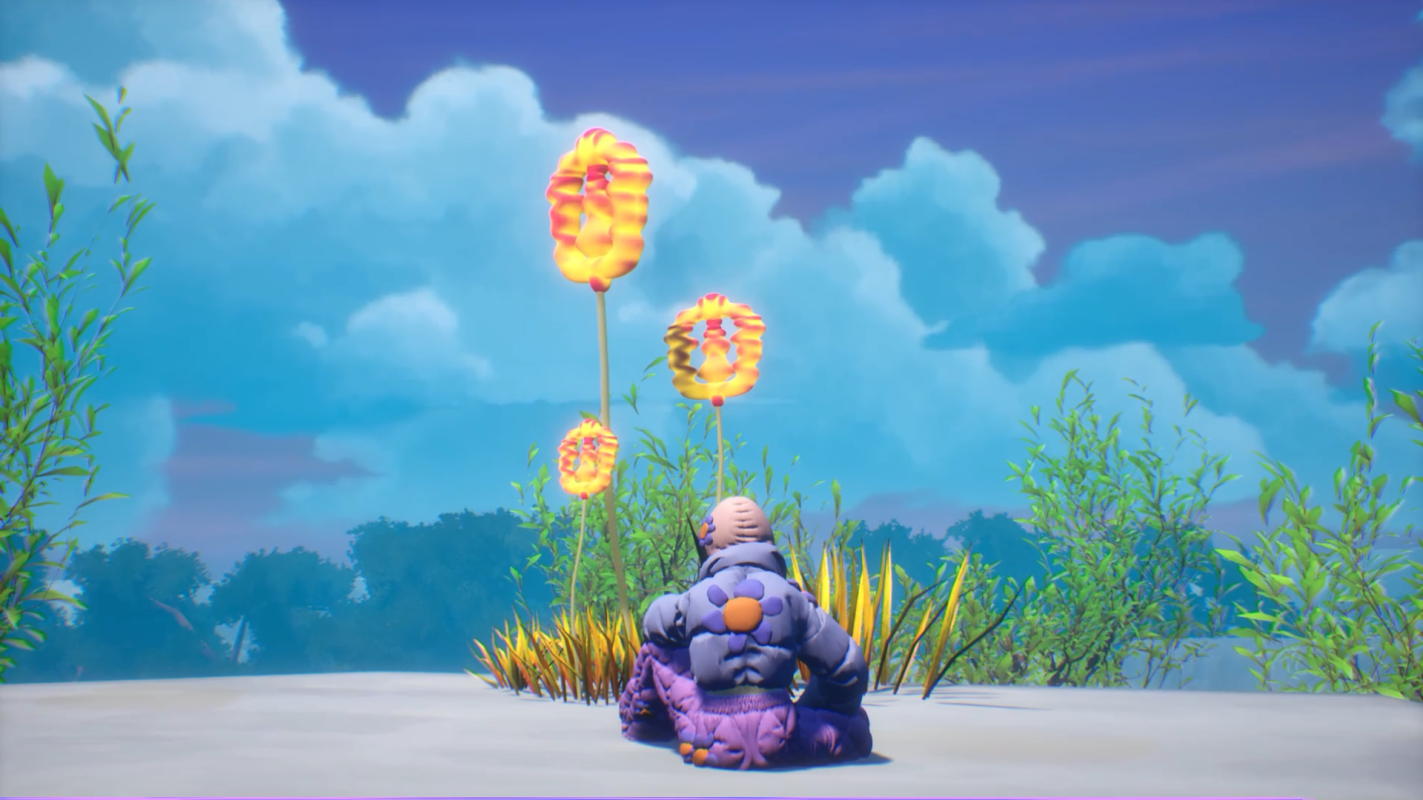
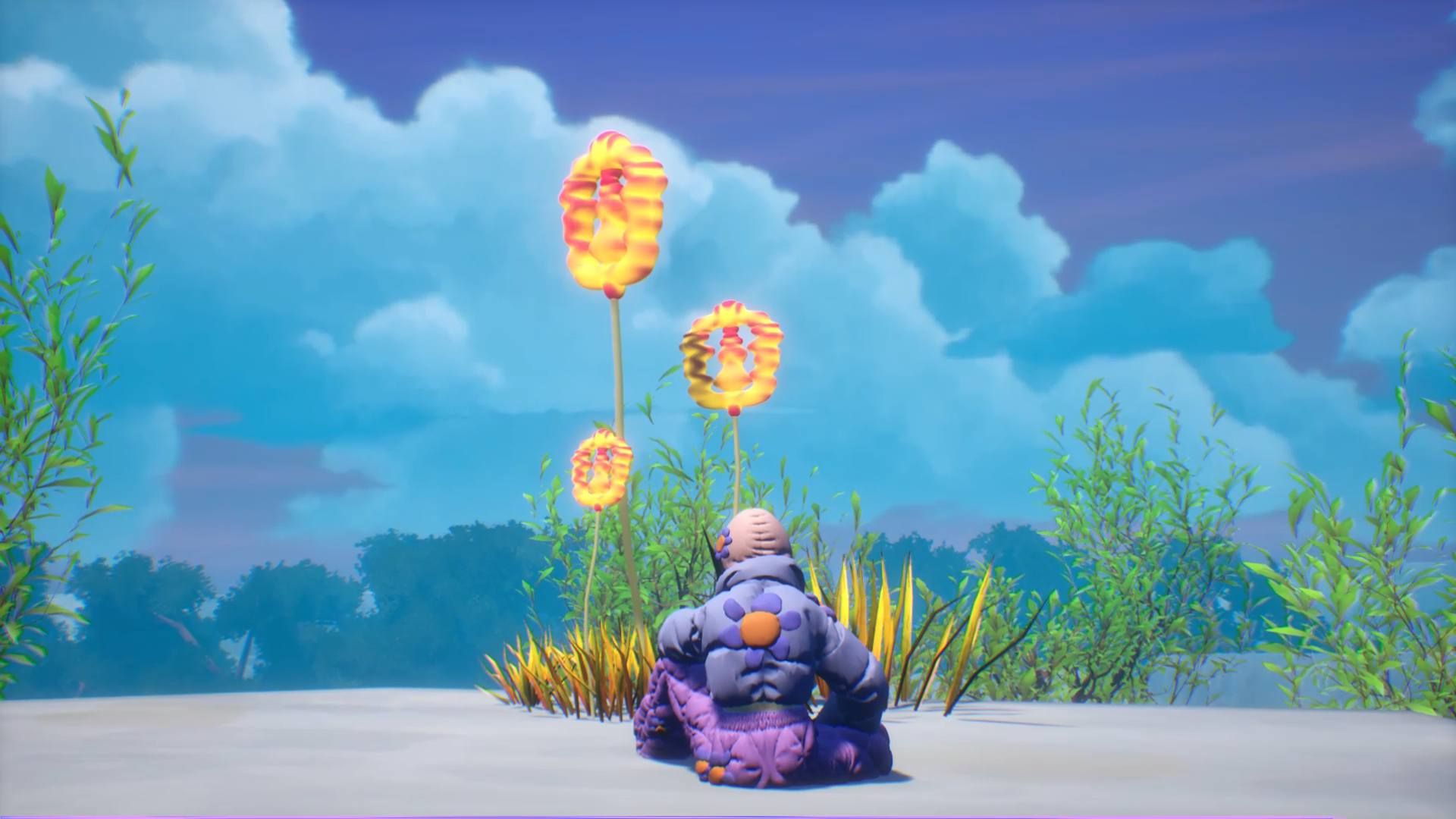
References
[1] Christina Elizabeth Sharpe, In the Wake: On Blackness and Being (Durham, NC: Duke University Press, 2016).
[2] Tina Marie Campt, Listening to Images (Durham, NC: Duke University Press, 2017).
[3] Barnard Center for Research on Women, "Tina Campt: Black Feminist Futures and the Practice of Fugitivity," YouTube, accessed January 19, 2023.
[4] Tina Marie Campt, Listening to Images (Durham, NC: Duke University Press, 2017).
[5] Akwugo Emejulu, Fugitive Feminism (Cambridge: Polity Press, 2023).
[6] Saidiya Hartman, Wayward Lives, Beautiful Experiments: Intimate Histories of Social Upheaval (New York: Norton & Company, 2019).
[7] Notorious B.I.G., "Juicy," Ready to Die, Bad Boy Records, 1994.

